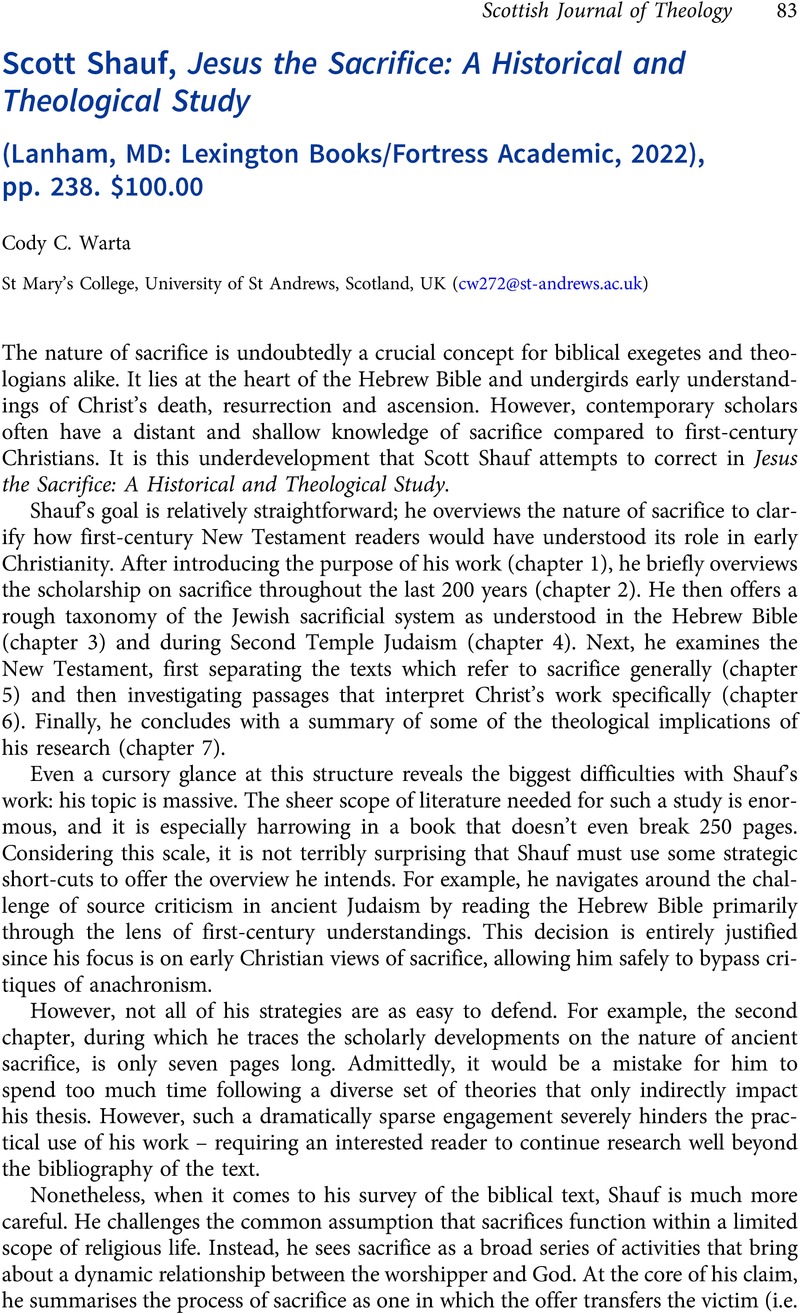No CrossRef data available.
Article contents
Scott Shauf, Jesus the Sacrifice: A Historical and Theological Study (Lanham, MD: Lexington Books/Fortress Academic, 2022), pp. 238. $100.00
Review products
Scott Shauf, Jesus the Sacrifice: A Historical and Theological Study (Lanham, MD: Lexington Books/Fortress Academic, 2022), pp. 238. $100.00
Published online by Cambridge University Press: 13 January 2023
Abstract
An abstract is not available for this content so a preview has been provided. Please use the Get access link above for information on how to access this content.

- Type
- Book Review
- Information
- Copyright
- Copyright © The Author(s), 2023. Published by Cambridge University Press



